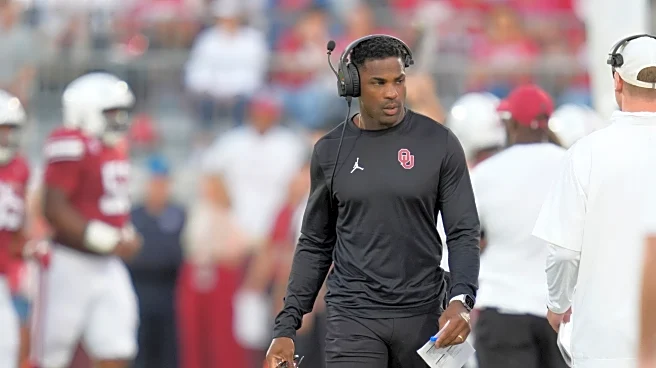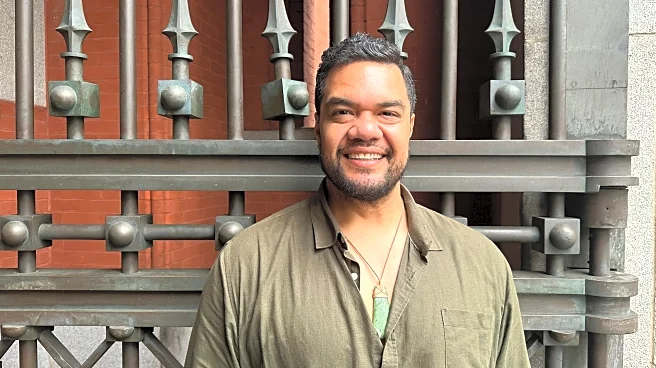Rapid Read • 8 min read
Pakistan has successfully navigated diplomatic relations with President Trump, leading to a shift in U.S.-India relations. During Trump's second term, Pakistan has managed to foster closer ties with the U.S., despite previous tensions. This development comes amid a crisis in U.S.-India relations, marked by trade disputes and personal disagreements between Trump and Indian Prime Minister Narendra Modi. Pakistan has secured favorable U.S. tariffs and is exploring joint ventures in oil and cryptocurrency with the U.S. Additionally, the U.S. has pledged closer counterterrorism cooperation with Pakistan, designating the Baluchistan Liberation Army as a foreign terrorist organization. These diplomatic efforts have surprised many, including political commentators and officials in both Pakistan and India.
AD
The shift in U.S.-Pakistan relations under President Trump has significant implications for geopolitical dynamics in South Asia. Pakistan's ability to secure favorable trade terms and counterterrorism cooperation could strengthen its economic and security position. This development may alter the balance of power in the region, as India has traditionally been a key U.S. ally against China. The improved relations with Pakistan could lead to increased U.S. influence in the region, potentially affecting trade and security policies. However, the unpredictability of Trump's foreign policy and Pakistan's economic challenges could pose risks to the sustainability of these diplomatic gains.
Pakistan's leadership aims to leverage its improved relations with the U.S. to access advanced American defense technology, including attack helicopters and naval equipment. However, the long-term success of these diplomatic efforts depends on Pakistan's ability to deliver on its promises, such as developing its oil reserves and rare minerals. The geopolitical landscape remains uncertain, with potential shifts in U.S. alliances and regional power dynamics. Pakistan's future strategy will likely focus on maintaining its diplomatic gains while addressing internal economic and security challenges.
The diplomatic success of Pakistan with President Trump highlights the role of personal networks and strategic lobbying in international relations. Pakistan's engagement with Trump's business associates and family networks has been instrumental in reshaping its relationship with the U.S. This approach underscores the importance of understanding and navigating the personal dynamics of political leaders in achieving diplomatic objectives. The situation also raises questions about the sustainability of such strategies, as they may not provide a long-term foundation for stable international relations.
AD
More Stories You Might Enjoy












